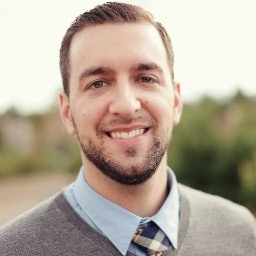
Many others have attempted to describe the distinctive characteristics of Millennials, and although popular media have often negatively portrayed the mindset of Millennials, there seems to be some consensus that there are also many strengths of the Millennial Generation. On the one hand, many suggest that they are narcissistic (see recent cover story of Time magazine titled “The Me Me Me Generation”), lazy, unhappy if not instantly gratified and over-parented. On the other hand, they are also considered to be tech-savvy, optimistic, more accepting of diversity and adaptive.
But do these prescriptions of shared experiences and frames of mind apply to all Millennials? Of particular interest for this discussion: Are students coming to HBCUs with similar experiences and perspectives as their peers at other institutional types? A closer look at recent data suggests that, in the aggregate, students at HBCUs are, in fact, uniquely different from all students at all other types of institutions in the U.S. The potentially problematic portrayal of the Millennial Generation in popular media as a uniform group caused us to think about the work we do at HBCUs and ultimately delve a little deeper to discover some of the unique qualities of our HBCU students that have eluded most public conversations about Millennials.
So what is so different about Millennials at HBCUs? It may be appropriate to start at home. According to a national survey administered to incoming freshmen, 63.9 percent of incoming freshmen at HBCUs reported that they were coming from neighborhoods that were mostly or completely non-White, whereas only 21 percent of students at all baccalaureate institutions in the U.S. came from neighborhoods that were mostly or completely non-White. To be expected, considering the neighborhoods from which students reported they were coming, 55 percent of HBCU students reported that the most recent high school they attended was mostly or completely non-White compared to their peers at all baccalaureate institutions who reported the exact opposite, with approximately 55 percent saying their high school was mostly or completely White. Dr. Marybeth Gasman in her recent report, The Changing Face of Historically Black Colleges and Universities, presented data that suggested Black students still comprise 76 percent of the student body at HBCUs. From this data, one can infer that the majority of HBCU students have fairly isolated racial experiences when it comes to the neighborhoods where they grew up and the secondary and postsecondary institutions they attended.
HBCU freshmen diverge from the general population of Millennials in a few other interesting ways when it comes to social issues and diverse perspectives. Bucking the trend of their Millennial peers at all institutional types who are far less religiously affiliated, HBCU students still identify strongly with Christianity (59.3 percent either Baptist or Church of Christ), and only 10.8 percent reported no religious preference at HBCUs compared to 23.8 percent of all students at all institutional types.
Prominent and controversial social issues that have experienced major shifts in support over previous generations also received quite different results when looking at HBCU students. For example, HBCU students demonstrated much less support for same-sex marriage and abortion, but felt much more strongly than all students that the death penalty should be abolished, that racial discrimination is still a problem, and that a national health care plan is needed to cover everyone’s medical costs.
Maybe the most interesting finding was that HBCU students, when rating themselves compared to the average person their age, felt they were less tolerant of others with different beliefs and less able to see the world from someone else’s perspective.
What does all of this mean and why does it matter? First, the data proves that Millennial students are by no means a homogenous group and that our HBCU students bring a unique perspective to our campuses. Second, we can’t assume that because the Millennial Generation is more diverse demographically that all students are coming with significant exposure to issues of diversity and equity. And last, it suggests that students may be coming to HBCUs with different expectations regarding the support they need and the opportunities they desire for intellectual and spiritual stimulation.
We must certainly view our students’ experiences and abilities as strengths to build upon. As the individuals responsible for taking our students as they come and producing globally competitive and diverse leaders, however, we must be mindful of the areas that may be less developed within our students and require a little more attention. Institutional context will determine what exactly that looks like, but it certainly has implications for the type of opportunities students are provided on campus to engage with people, ideas and issues that will aid in their intellectual development.
Editors notes: The Cooperative Institutional Research Program (CIRP) survey is administered by the Higher Education Research Institute (HERI) at the University of California, Los Angeles.
— It should be noted that 95 percent of HBCU students who responded to the CIRP survey identified as Black.
C. Rob Shorette II (@C_RobShorette) is the presidential ombudsman for administrative affairs at Alcorn State University and Dr. Walter M. Kimbrough (@HipHopPrez) is the president of Dillard University. Special thanks to Dr. Derek Greenfield, director of educational equity and engagement, and Jeremy Mason, special assistant to the president for university initiatives at Alcorn State for their contributions to the presentations that served as inspiration for this article.


















